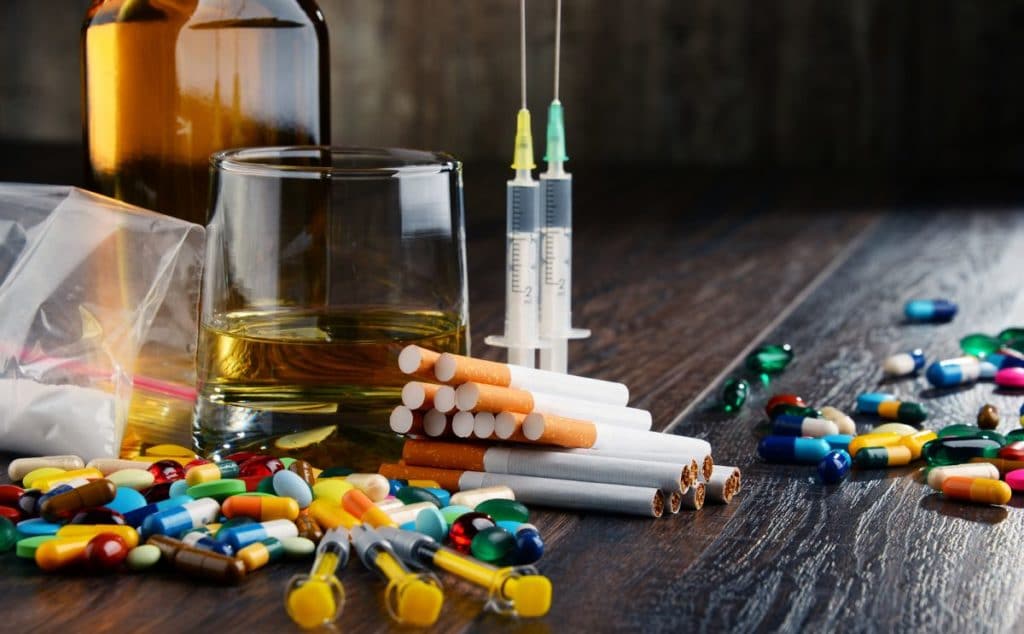Drugs in Adolescents, Reflections
As we all know, there is a serious drug problem worldwide, this issue continues to have a great impact on society at a general level, however in this article we invite you to discover the topic of reflection on drugs in adolescents.
Drugs in adolescents, reflections
In relation to drugs in adolescents, there is concern in society due to the high rate of consumption of narcotic substances. These have boomed in many parts of people’s lives, as well as specifically how they have been introduced into the lives of adolescents in current times.
Summary
In this article, some points are observed in relation to the reflection on drugs in adolescents, as well as the consequences that they cause or generate, the analysis and the proposals.
As a first point we can mention drugs and their prevalence, which deals with the 60% increase in consumers in South America, as well as the existence of 63% in the student population of drug users in Colombia.
The second point refers to the action of drugs and how they affect the central nervous system as well as the consequences that they bring to the functions of internal organs, as well as the dependence and abuse of them.
As a third point, two particularities are shown: consumption, consequences and functioning in the neurological part, as well as the understanding of the antecedents to the decision of consumption with clear but not decisive results.
Due to this, structures and proposals have been developed that seek the explanation of the choice and consumption of drugs, through a thesis on intentionality, which is related to behavioral planning and neuropsychological thesis.
In recent years, drug use in adolescents has become illegal, however, the increase in drug use has also been evidenced, as well as the increase in problems and behavior that exist in terms of risk. of the teenagers.
According to some results on drug use in this important stage of life, there are serious evidences and many consequences that usually occur.
Short reflections on drugs
It is important to reflect on drugs , since this issue is of great importance in today’s life, because it has become little discussed, which we think is wrong, in terms of individual internal debate. This topic must be treated and disclosed collectively for general knowledge.
We want to present to the reader some important data regarding this topic about information, debates that have been carried out, we can determine them as follows:
1.- We must keep in mind that drugs do not liberate,
These produce depression, many times they disinhibit the person, they encourage him, the person feels amused, they cause distension, but they do not release at any time.
2.- The markets for this type of product absorbed the same as if it were any other product. This can be seen in the regime of supply and demand. This drug market is offered at the level of advertising, money, merchandise, whether legal or illegal drugs.
3.- The illegal part of drugs is linked to their permissiveness, marginalization, as well as the continuity of capitalism. However, they continue to be illegal in relation to the reference in terms of social control, being reflected in the less favorable layers of the system.
It would be considered unreasonable to require the State to legalize drugs, since most of them are classified as illegal, and due to this the particularity of being illegal is their essence, thereby causing much of their effectiveness.
4.- Alcohol, tobacco or cigarettes, drugs are administered to the social sector in general, which decreases in terms of social class but increases the effect of the drug as such.
Due to this, drugs such as crack, heroin, are promoted in different social sectors where there is marginality and poverty. Seeing its main impact in the different areas of cities, mainly in those that are characterized by marginality, being in these that the drug has a greater boom and is more seen.
Teens and drug use
As we mentioned in previous paragraphs, this consumption is currently such an important issue since it especially affects adolescents. Consumption during this stage and early adulthood, are of high incidence.
Magnitude of the problem
In relation to the illegal consumption of adolescents in relation to drugs, and according to recent data, one in four adolescents consumes substances during recent months. Among these drugs we can mention alcohol, tobacco, cocaine; as well as substances with cannabis derivatives.
The latter are considered the most consumed by adolescents. The increase in consumption does not have a specific cause that can be explained. In certain cases, some of the most frequent causes that lead the adolescent to enter this world are: family problems, an increase in mental problems.
According to some data, an increase in prevalence has been shown in terms of disorders that occur due to the use of psychotropic substances (mental disorders) and present an index of 65 and 75. This leads to a particular clinical situation that many adolescents treated in medical services , present abuse of narcotic substances, interfering in the symptomatology of these patients.
Most prevalent mental disorders in adolescent drug users
- Anxiety disorder
- behavior problems
- Autolytic behaviors
- Attentional complications with features of hyperactivity
- affective difficulties
- Particularity in eating behavior
Other symptoms
As other types of symptoms of drug use and abuse in adolescents, although we have already mentioned some in the previous paragraph, we can mention the following:
- Exaltation and overconfidence
- changes in behavior
- Dilated pupils
- heightened state of alert
- Increased energy and restlessness
- rapid and incoherent way of speaking
- State of confusion, hallucination or delirium
- Anxiety, irritability
Psychotic in nature
According to studies regarding drug use in adolescents, they show the various and serious consequences that this generates, in terms of the physical and psychological part, as well as the adolescent’s social environment (school, social relations, and family).
It is well known that according to the evidence regarding the incidences of consumption, it is known that they are more dangerous for adolescents than for adults, as well as in terms of harm such as adverse effects in relation to the psychosocial part, this tends to affect more young being more noticeable, which decreases with age.
It is feasible that due to drug use, 10% of adolescents may have consequences due to it, these consequences may be direct and we can determine them as follows: motorcycle or vehicle accidents, falls, arguments or fights, burns, intoxication, mental problems. created etc
There are treatment programs for adolescent drug users and they are usually effective in this type of case, since this lowers the rate of drug use in adolescents.
This leading to a decrease in criminal activities, improvements in psychopathological problems, and also improves academic performance. Regarding medical literature, it is evident that it is better to be in treatment than not to have it.
As for the foregoing, according to the Mental Health Centers for young people and children, as well as the Drug Addiction Care Centers, it is known that drug use is not being well managed only by medical consultations but by the Health System.
With these results, one might think that the problem is not being handled adequately despite the repercussions of drugs in terms of consumption by adolescents.
There is also another characteristic to take into account and that is the difficulty in detecting the problem since the adolescent consumers themselves deny or minimize their attitude towards drug use.
The involvement of pediatric emergency services
Pediatric type consultations are the most sought after in terms of the consequences of drug use. The reasons why this usually happens are in relation to alcohol, poisoning, traumatic injuries, injuries caused by the consumer himself (mostly this is seen in women).
Medical services can be a key piece in the process of detecting adolescent drug abuse, because they usually go first to simple consultations rather than seek help in more specific places for this purpose, such as help centers on drugs etc
According to data from the city of Catalonia, it is not possible to know exactly the repercussion of drug use in adolescents. Frequently, the treating physicians usually notify and diagnose only the reason for the consultation, even if there is a previous exploration of the consumption of toxic substances.
The possibility of carrying out a urine test could be considered to determine if there are signs of consumption, if there is intoxication, with this the amount of consumption in the body could be determined. The above can be done if the reason for the consultation is due to injury, traffic accident, etc.
Likewise, the treating physician must inform both the minor and his parents of the need to carry out this type of test and thus make the results of the tests known to both the minor and his parents.
If for any reason the minor does not consent to the parents being told the result, the parents will also be informed by the doctor about the result of the tests, this is an obligation of the treating doctor.
In relation to this type of matter, the professional must make the appropriate decision and assess the necessary medical aspects, such as the legal and ethical aspects of the actions.
legal implications
According to a study carried out at the Official College of Physicians of Barcelona, on the procedure to be followed, the result was to carry out a toxic test in the urine or the “blood”. The approval of the minor must always be taken into account in this regard. However, if they are not mature enough, then parental consent will be required.
If the minor does not have the necessary maturity and refuses to perform the test, the doctor or specialist will not be able to do it. In the event that it is extremely necessary to carry it out, because there is a risk to her life, there must be parental authorization.
Regarding the rights of minors in relation to the health field, specifically in Spain, they must have as their north the Catalan Law, dated December 29, this refers to the rights to information about health, autonomy of the affected person and clinical documents.
There is the Basic Law which determines having an age of majority (16 years) in relation to the health field. Whether or not there is emancipation. In relation to this, the law determines that the minor will have the capacity to make decisions regarding his or her health.
In the event that the minor with full capacity presents a strong intoxication, and the consequences of these make him incapacitated, the pertinent medical procedures will be carried out such as: toxicological analysis (if indicated), the parents must also be informed even if the minor or teenager refuses it. All this due to what the law establishes on the information and consent of parents or legal representatives.
The specialist should ask himself whether to attend for the third time in a year to the adolescent who presents polytraumatisms, surely due to secondary effects due to the consumption of toxins, when he continues to deny it.
The characteristics of emergency services must be taken into account, which make it difficult to correctly assess the problems of adolescents who use drugs. Frequently these are saturated, the reason for the consultation is not related to drug use but generally an adverse effect of consumption.
In this type of situation, a specific toxicity test can be carried out through urine, and in this way evidence or verify the consumption and later advise the adolescent on the problems that this type of behavior brings.
It is also valid to carry out a more specific and appropriate assessment of possible addiction that the affected adolescent or consumer may be presenting.
ethical implications
Likewise, a query was made to the Borja Institute of Bioethics (Ramón Llull University), this institution poses a dilemma about: the specialist must confront the principle of autonomy and beneficence. Likewise, the ethical duty of confidentiality in relation to the information of the affected person.
Discussion: which principle should prevail?
There is a tendency to carry out actions in relation to autonomy and through a purely defensive praxis. The point in all this is that daily life is characterized by situations that are not very clear in terms of ethics, just as legal formulations are not.
Regarding the problems related to drug use in adolescents, we can present some reflections as follows:
- The specialist who treats the emergency must be devoted to seeking the good for the adolescent. There must be the following question: can the specialist use persuasion to detect drugs, as long as the purpose of the action is explained to the patient?
- If there is early detection of an addictive type problem and a therapeutic plan based on prevention from the intervention is proposed. Could you consider breaking the confidentiality of informing parents and support this action in the therapeutic privilege exception?
- If an adolescent is known in the consultation service, and has had a third vehicle accident, being the driver of a motorcycle for example, and in turn he recognizes that this happened due to substance use, the risk being a matter possibly presented. Can a benefit action be filed for both the adolescent and third parties? Could the principle of justice be applied, that is, the benefit for all?
There is the principle of autonomy which is characterized by demanding respect for the ability of people to make decisions and that their will be respected in relation to everything that refers to their person.
In the event that the patient’s competence is evaluated positively, the specialist will respect the adolescent’s refusal to undergo the tests that must be done, as well as the report that must be made to the parents or their guardians.
Otherwise, if the minor’s competence is not evaluated and the specialist is governed only by age, for the prevalence of his autonomy, he would be facing a legal risk scenario.
The principle of beneficence deals with the good of the patient, the protection of their rights, the obligation to provide medical services and decision-making in relation to when specific tests or analyzes have to be carried out.
This beneficence is considered mandatory when it meets the following conditions, namely:
- The beneficiary will be exposed to damage in relation to his life or health.
- The action is necessary to prevent this damage.
- That the action is likely to prevent harm.
- This action does not cause great risks or values for the person who performs it.
- The benefit outweighs the risk incurred.
The adolescent who generally has a substance use problem does not seem to be aware of it, and tries to lessen the consequences, however his reaction is present when problems appear due to it, such as: psychosis, trauma, expulsion from schools , accidents, etc
It is also known that an early start in a case can constitute prevention, both of the appearance and of the presence of recent problems, as well as the solution of these disorders is usually complicated and long, and it may be feasible that the emergency consultation is a good idea to do it.
Signs of Drug Use and Teens
It is completely normal for parents to worry about their children in adolescence. It is also feasible that they fear that their children are trying substances of this type or have addiction problems.
Measures can always be taken to control the adolescent and keep him away from this harmful world. Parents should keep in mind as much information as possible on the subject of drugs and their possible consequences.
They must also know the signs of drug use to be as alert as possible. You will apply most of the advice you learn about avoiding teen drug use.
Information
For the purpose of information for the reader, we can mention that although there are different types of drugs, older adolescents tend to consume more drugs than younger ones. The most common drug is marijuana. It is also known that many adolescents use prescription drugs.
Why do teenagers use drugs?
Among the reasons that adolescents have for drug use, we can mention the following as the most common:
To be accepted in society or to fit in: Social status is of the utmost importance for adolescents. Parents should be aware that children may use drugs in order to “fit in” with friends or to impress a new group.
In order to socialize: They will use drugs as this lowers inhibitions and they feel more comfortable in their social environment.
Dealing with changes in life: some adolescents resort to this type of outing in cases that are generally difficult for them to face, such as moving, starting a new school, divorce between their parents, the stage of puberty.
Talking to teens about drugs
Generally it does not seem to be easy, however it is of the utmost importance to talk to adolescents about this topic. This is a form of prevention of drug use in them. Some advice regarding this topic can be determined as follows:
Conversing constantly or frequently with the adolescent. It should not become a topic of great conversation. Movies or TV show topics can be used to start the conversation.
We should ask our teens questions such as why does he think kids use drugs? “Lectures” should not be given: we could also ask if someone has offered you drugs? The adolescent will be able to respond positively if it is considered a real conversation.
The youth should be told what you may feel as a parent or guardian. He must be told that this attitude is not approved by his parents or representatives.
We must give him the due time to talk and listen to him without interruptions. This will show that we are interested in his opinion.
Parents or guardians should spend time talking with the teen about their life on a daily basis. This will serve to deal with more complicated issues such as the use of drugs, alcohol and sex.
Prevention of drug use
The prevention of drug use is not infallible, however there are some measures that parents can take for such purposes, and which we expose below:
Keep an eye out or get involved: There must be a good relationship between the parent or guardian and their child. You must also show interest and offer support in their things.
We must be an example to follow: it is necessary to set an example in terms of our daily lives since adolescents are recipients of all the messages that we can transmit to them. We must not use drugs and medicines must be used by prescription as directed. If we are going to drink alcoholic beverages, we must do so with due moderation.
Introduce yourself and meet your child’s friends: We need to meet our children’s friends as well as their parents. It would be a good idea for our teenagers’ friends to visit us at our homes so that we can get to know them better and find out who they really are.
If we are aware of a bad friendship or influence on our children, we should suggest that they look for other types of friendships and stay away from the one that is harmful to them.
Set clear rules for your child about drug use: measures should be taken that they do not travel in cars with people who have used drugs, they should not stay in a place, usually parties where there is drug use.
Know what your teen is doing: Teens who are left unsupervised are more likely to get into drugs. You should be aware of who she is with, where she is. Ask him to communicate with you during the day, as well as when leaving school.
Suggest healthy activities: we should suggest healthy leisure activities such as sports, hobbies, extra activities that keep him busy with something productive, thus avoiding the time he may submit to drug use.
Know the signs of drug use
As signs or we could also say symptoms when there is drug use, it is good for parents to be alert to any of them in order to attack the problem in the adolescent. Among these we can mention:
- Bad or slow pronunciation, due to the use of depressants or tranquilizers
- They speak quickly or explosively, due to the use of stimulants
- The eyes are red and appear to be bloodshot
- constant cough
- Strange or unusual breath, from inhalation drug use
- The pupils are dilated or large, it can also be the opposite to be very small or pinpoint
- The movement of the eyes is fast, this could make us think that there is consumption of PCP
- Lack of appetite, this occurs in the face of the use of amphetamines, methamphetamines or cocaine
- Unlike the above, there is an increase in appetite, with the consumption of marijuana
- Step or walk unsteadily
Changes in the affected person’s energy may be noticed, such as:
- Sleepiness all the time, apathy or lack of interest, laziness. Constant sleep is caused by the interference of heroin, codeine or stimulant drugs
- Hyperactivity, caused by stimulants such as cocaine and methamphetamines
- It is also possible to observe changes in the behavior of the affected young person, among these we have:
- School absence, low or poor performance
- Withdrawal from participation in usual activities
- Groups of new friends or change of groups of friends previously discussed
- secret activities
- Steal or lie
How to get help?
When parents think that their child may be using drugs, it is necessary or necessary to talk to the specialist. This is the right person to try to help the adolescent as well as be able to refer him to a drug specialist, a place where he receives the appropriate treatment.
Likewise, help can be sought within the community or in hospital or medical centers. Specialists in treating adolescents should be sought.
Conclusions and reflection
Drug use, as we all know, is very harmful for adolescents, since it has a series of consequences such as affectation of school activities, mental or psychological disorders; problems in the sharing of their lives in the field of sociability. That is why we must reflect on drugs in adolescents .
Similarly, there have been changes in the consumption of alcoholic beverages and other substances, this usually happens most of the time during the weekends, which is when most of the affected adolescents socialize.
As we said before, the specialty centers that receive this type of case with harmful consequences for adolescents are pediatric emergencies.
Another particularity is that if it is about adolescents who are using drugs and are treated by the specialist, the latter could find themselves in situations where they must bear in mind the criteria regarding maturity, risk, competence, intervention, confidentiality, etc.
After the development of this important topic today, it is the duty of all parents to talk to their children about drugs, their consumption and their immediate and long-term consequences, so that they are clear about the damage they cause to health. It is also necessary that we reflect on drugs , since it is a problem that is getting worse every day in these times.
It is important that we as parents have the hard work of knowing what our children are doing, who they hang out with, that is, being fully aware of them in their daily activities, both school, social life, who their friends are, as we mentioned in previous paragraphs of this article we must seriously reflect on drugs and support our young people in everything we can to distance them as much as possible from that world that does so much damage to today’s society.

Hello! Let me enthusiastically introduce myself as a dedicated blogger fueled by an intense passion for meticulously crafting insightful and well-researched blogs. My mission revolves around providing you, dear readers, with a veritable treasure trove of invaluable information.






